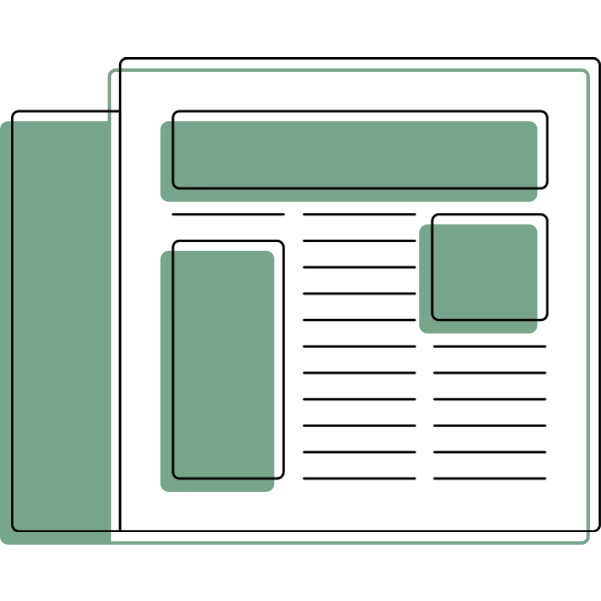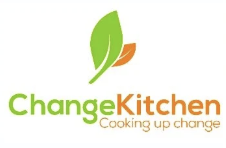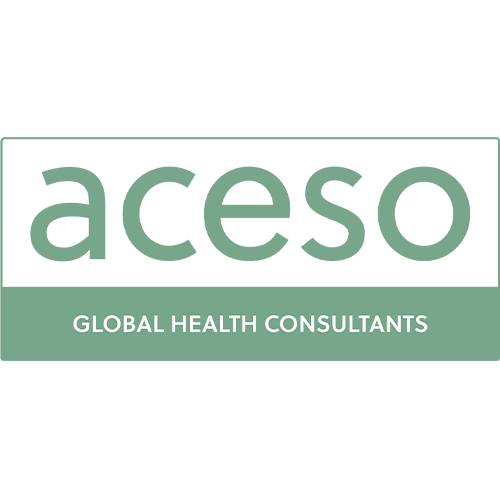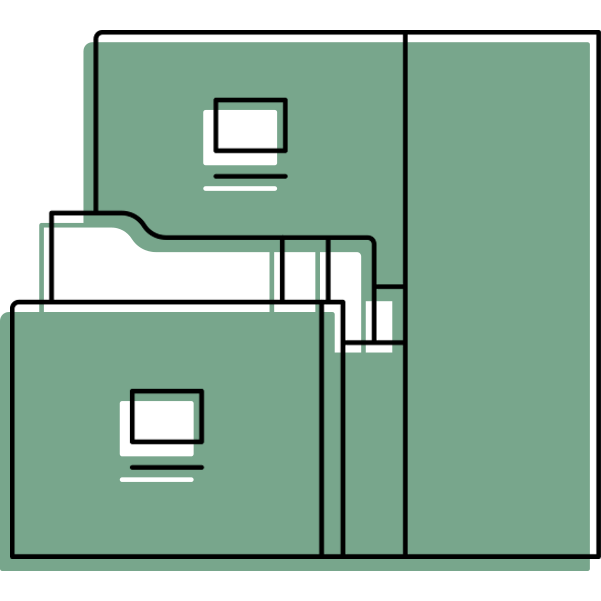Latest
News
Welcome to the Aceso Newsroom.

20 Novembse 2025

Aceso Global Supporting Change Kitchen’s Vital Work
We are incredibly grateful to Change Kitchen for making best use of what could otherwise have been a wasted opportunity. Surplus food was thoughtfully redirected to support their vital work addressing food insecurity and food poverty within the community and supports our Corporate Social Responsibility aims.
We feel privileged that the meals from an rescheduled Aceso event was able to contribute to their wider feeding programme with Incredible Surplus and reach those who needed them most.
Our sincere thanks to Change Kitchen for turning potential waste into meaningful impact and for the important work they continue to do.

09 September 2025
Aceso Global Launches Creative Collaboration
We’re thrilled to announce a new creative venture in partnership with Living Light Art Studio, a dynamic arts hub based in Hong Kong.
Together with Living Light Art Studio, we worked alongside local artists to co-create a series of original artworks, which were proudly exhibited at IF Gallery in Hong Kong. The exhibition drew strong public interest, and several pieces were sold with proceeds supporting two charitable organisations, one in India and another in Hong Kong.
This marks the beginning of what we hope will be a long-standing series of art-led initiatives, as Aceso Global Consultants continues to explore innovative ways to give back through creativity and collaboration. If you’re an emerging artist interested in contributing to future charitable projects, we’d love to hear from you.
A heartfelt thank you to Living Light Art Studio and IF Gallery for their generosity, imagination, and support in making our first venture such a success. We’re already developing our next opportunity with Living Light Art Studio. Stay tuned for updates!

5 AUG 2020
Prof. Monica Lakhanpaul and Diana Margot Rosenthal's Chapter "Child Health and Homelessness" published in new UCL Press Book
With a 62% increase in child homelessness since 2013, Prof. Monica Lakhanpaul and Diana Margot Rosenthal make the case for transformative policy changes in their chapter "Child Health and Homelessness" in the new UCL Press book Transforming Early Childhood in England. The book is free to download.

31 MAR 2021
Reverse innovation: learning from low- and middle-income countries through NEON
For a long time, the common practice has been high-income countries teaching the lessons they have on health to low- and middle-income countries. However, little has been discussed about how the reverse also works. On 31st March, Prof. Monica Lakhanpaul spoke on BBC’s Health Check programme about what is called ‘reverse innovation’: when high-income countries learn from low- and middle-income countries. She spoke about several health projects implemented in the UK, including the Nurture Early for Optimal Nutrition (NEON) Programme, which are adapted from successes in India, Nepal and Africa.
“Why not try to adapt [these successes] to try and prevent obesity and heart diseases that we see so often in this country [the UK]?” said Prof. Lakhanpaul. NEON brings together women in groups where they share problems related to feeding, care, and dental hygiene practices during the first 1000 days of children’s lives and identify and apply solutions, using a participatory learning and action cycle. Currently, this project works with individuals from South Asian backgrounds in the UK to share nutritious and culturally tailored children’s weaning recipes.

31 MAR 2021
Reverse innovation: learning from low- and middle-income countries through NEON
For a long time, the common practice has been high-income countries teaching the lessons they have on health to low- and middle-income countries. However, little has been discussed about how the reverse also works. On 31st March, Prof. Monica Lakhanpaul spoke on BBC’s Health Check programme about what is called ‘reverse innovation’: when high-income countries learn from low- and middle-income countries. She spoke about several health projects implemented in the UK, including the Nurture Early for Optimal Nutrition (NEON) Programme, which are adapted from successes in India, Nepal and Africa.
“Why not try to adapt [these successes] to try and prevent obesity and heart diseases that we see so often in this country [the UK]?” said Prof. Lakhanpaul. NEON brings together women in groups where they share problems related to feeding, care, and dental hygiene practices during the first 1000 days of children’s lives and identify and apply solutions, using a participatory learning and action cycle. Currently, this project works with individuals from South Asian backgrounds in the UK to share nutritious and culturally tailored children’s weaning recipes.

6 NOV 2020
Senior Consultant, Ysabelle Boo, awarded grant from the GC Science Scholarship Foundation
We are proud to announce that our Senior Consultant, Yebeen Ysabelle Boo, has become 1 of only 10 recipients of a $10,000 grant from the GC Science Scholarship Foundation for her public health and research work conducted during her time at Aceso Global Health Consultants. She is also the recipient of the Nuffield Department of Population Health, University of Oxford scholarship, which awarded her £10,000 last month. Huge congratulations to her for all her efforts!

21 AUG 2020
A new publication: "Reverse Innovation: Could Learning From LMIC Child Health Programmes Support HIC to Equitably and Efficiently Address Child Health Needs Post COVID-19?"
As the effects of COVID-19 continue to be intensely felt across the globe, questions have been raised about how we can ensure our children get the best start in life. In their new paper, Prof. Monica Lakhanpaul, Diana Margot Rosenthal, Maya Lakhanpaul, Jennifer Martin, Dr. Michelle Heys, and Dr. Priti Parikh argue that reverse innovation and learning from child health programmes in low-middle income countries could be the key to this, offering the potential to combat health inequalities related to lockdowns and the reduction of services.

10 SEP 2020
A new publication: "COVID-19 and informal settlements – Implications for water, sanitation and health in India and Indonesia"
1 billion people live in informal settlements characterised by high population densities and poor infrastructure. The new publication from the Childhood Infections and Pollution Consortium, by Dr. Priti Parikh, Yasmin Bou Karim, Jacob Paulose, Prof. Pam Factor-Litvak, Emily Nix, Dr. Dewi Nur Aisyah, Hemant Chaturvedi, Dr. Logan Manikam, and Prof. Monica Lakhanpaul, investigates the impact of COVID-19 on WASH practices in Informal settlements in India and Indonesia and identifies key pathways for COVID-19 transmission within these settlements. Key recommendations include the instillation of mobile and contactless hand washing, washing/bathing facilities, and toilets in the short term, and long-term investments into centralised water and sanitation networked solutions appropriate for high-density settings in order to integrate settlements into cities and improve the environmental conditions and health in these cities.

11 SEP 2020
NEON programme presents publication at the Royal College of Paediatrics and Child Health Online Conference (2020)
The first 1000 days of a child’s life are key to child development. Sub-optimal nutrition before the age of 5 can increase health risks such as obesity and dental problems later in life. The Nurture Early for Optimal Nutrition NEON programme aims to address this and will be presenting at the Royal College of Paediatrics and Child Health Online Conference 2020 with the poster “Nurture Early for Optimal Nutrition (NEON) Programme: Qualitative study of drivers of infant feeding practices in a British-Bangladeshi population”, produced by Prof. Monica Lakhanpaul, Dr. Lorna Benton, Oliver Lloyd-Houldey, Dr. Logan Manikam, Diana Margot Rosenthal, Shereen Al Laham, and Dr. Michelle Heys.

17 SEP 2020
“Global Governance for One Health: A Systematic Review” publication accepted for poster presentation at the World Health Conference (2020)
The abstract “Global governance for One Health: A systematic review”, co-authored by Dr. Omar Risk, Lara Hollmann, Dr. Logan Manikam has just been accepted for poster presentation at the World One Health Congress (2020). This highlights that in the context of a growing threat from Zoonotic diseases, such as COVID-19, and antimicrobial resistance, holistic, One health approaches will be essential for addressing the Global health problems of the future.

22 SEP 2020
Senior consultant, Ysabelle Boo, presents on behalf of the CHIP Consortium at the AAP National Conference
Yebeen Ysabelle Boo, on behalf of the Childhood Infections and Pollution (CHIP) Consortium, will be presenting the abstract "Operationalising a One Health approach to reduce the burden of infection and anti-microbial resistance in under-5 urban slum dwellers: The Childhood Infections and Pollution Consortium (CHIP)" at the American Academy of Pediatrics 2020 National Conference and Exhibition (2-5 October 2020). This outlines the CHIP Consortium's objective to reduce the burden of childhood infections and AMR in urban slums, particularly in low-and middle-income countries, and it's distinctive One Health and technology-enabled Citizen Science approach.

5 SEP 2020
Professor Lakhanpaul presents on her PANSHCHEEEL study at the Mukul Madhav Foundation’s webinar for Indian Nurses
CHIP Co-Director, Prof. Monica Lakhanpaul, will be sharing her expertise on child health, nutrition, infection, One Health, and her key PANChSHEEEL study, “Medicine – A Noble Profession: a session on maternal and child health” at the Mukul Madhav Foundation’s webinar for Indian Nurses on Monday. She will speak alongside Dr. Arvind Shah and Dr. Anand Bang.

29 SEP 2020
A new Publication: "Risk Factors Associated with Knife-crime in United Kingdom among young people aged 10–24 years: A Systematic Review"
Knife crime has been on the rise since 2013, and yet very little UK-based research has been conducted on it. Whilst knife-crime is often portrayed as being related to specific ethnicities and genders, the new systematic review, published by BMC Public Health, from Sara Haylock, Talia Boshari, Emma C. Alexander (of Aceso Global Health Consultants), Ameeta Kumar, Dr. Logan Manikam (of Aceso Global Health Consultants), and Richard Pinder suggests this is not the case. Instead, they argue more research is needed to determine the role of mental health, childhood experiences, discrimination, and economic inequality in shaping this behaviour.

21 OCT 2020
Poster on "Building referral mechanisms for newborn care in humanitarian emergency settings: a systematic review" accepted to the Royal College of Paediatrics and Child Health Online Conference (2020)"
Prof. Monica Lakhanpaul, Dr. Logan Manikam, Spencer Rutherford, and Emma C. Alexander's poster has been accepted to the Royal College of Paediatrics and Child Health Online Conference (2020).

23 OCT 2020
Professor Lakhanpaul chairs the UCL 'Beyond Boundaries: Realising the UN Sustainable Development Goals'
CHIP Co-Director, Prof. Monica Lakhanpaul, will chair the UCL 'Beyond Boundaries: Realising the UN Sustainable Development Goals' session on assistive technologies.

25 NOV 2020
Birthing a Better Future Art and Science Exhibition
What can be achieved in 1000 days? According to science, this period is vital for a new-born child’s brain development, which is heavily influenced by exposure to good relationships and healthy environments. The Birthing a Better Future Art and Science Exhibition from Zero2Expo (founded by Alex Florschutz, MA) brings together artists and scientists to explore new ways of thinking about pregnancy, birth, and parenting, combining expert opinions and thought-provoking art. After successful showings in the Houses of Parliament (2016), this exhibition has been traveling throughout the UK and a digital version is now available so that it can be accessed during lockdown.

2 DEC 2020
A new publication: "The Greatest Risk to Malaysian Healthcare Workers during COVID-19 Crisis: Lies of Patients."
One of the greatest risks of increased COVID-19 transmission is human behavior and deception, especially to healthcare workers. In the recent study conducted by Shereen Al Laham, Omar Zakieh, Faizul Nizam Abu Salim, Abigail Al Choong, and Dr. Logan Manikam, the greatest risks to Malaysian healthcare workers during COVID-19 was identified as patients lying about their potential exposure to COVID-19, their contacts and their symptoms. Both increased HCW's risk of contracting the virus and their stress levels as frontline workers.

21 DEC 2020
A new publication: "Building Referral Mechanisms for Newborn Care in Humanitarian Emergency Settings: A Systematic Review."
Humanitarian emergencies often significantly increase rates of neonatal mortality and risks of health complications in women and children. They also directly challenge health cluster partners' ability to effectively coordinate essential referrals to and within health facilities. Congratulations to Spencer Rutherford, N. Zaka, K. Leak, Meghan Cupp MPH, H. Hafezi, Emma C. Alexander, Prof. Monica Lakhanpaul, and Dr. Logan Manikam who have produced a comprehensive review of referral mechanisms for neonatal care within humanitarian emergency settings.
This review identifies the primary referral mechanism needs of neonates during humanitarian emergencies and presents mechanisms for effectively overcoming key barriers to fulfilling these needs.

30 DEC 2020
A new publication: "A Systematic Review of Household and Family Alcohol Use and Childhood Neurodevelopmental Outcomes in Low- and Middle-Income Countries"
Exposure to alcohol misuse in Childhood significantly affects children’s neurodevelopment and increases their risk of mental health and behavioural problems in later life. While traditionally research has focussed exclusively on wealthy countries, Tausif Huq, Emma C. Alexander, Dr. Logan Manikam, Tahir Jokinen, Priyanka Patil, Darrin Benjumea, Ishani Das, and Leslie L. Davidson’s recent systematic review of the impact of household alcohol misuse on children from LMICs, published in Child Psychiatry and Human Development (2020), pioneers efforts to meaningfully interrogate the distinct mechanisms driving associations between alcohol misuse and health-outcomes in LMICs.
This paper adds to existing knowledge about the effect of alcohol misuse on early neurodevelopment and finds a need for further prospective studies in this area.

24 NOV 2020
NEON publication and e-poster accepted to the NIHR Academy Members’ Conference (2020)
The recent publication, "Community engagement through the Nurture Early for Optimal Nutrition (NEON) programme to improve infant feeding, care and dental hygiene practices in South Asian infants aged < 2 years in East London" and e-poster produced by the Nurture Early for Optimal Nutrition (NEON) programme team has been accepted to the NIHR (National Institute for Health Research) Academy Members’ Conference 2020.
This publication, written by Dr. Logan Manikam, Shereen Al Laham, Dr. Michelle Heys, Dr. Clare Llewellyn, Dr. Neha Batura, Prof. Andrew Hayward, Dr. Rajalakshmi Lakshman, Jenny Gilmour, Kelley Webb-Martin, Carol Irish, Chanel Edwards, Corinne Clarkson, Mary Marsh, Delceta Daley, Amanda Nutkins, Prof. Monica Lakhanpaul, highlights how community engagement can help to develop low-cost interventions to address key public health issues.

6 AUG 2020
A new publication: “Cultural Influences on Complementary Feeding Beliefs amongst New Chinese Immigrant Mothers in England: A Mixed Methods Study”
Adequate nutrition during infancy and early childhood are essential for children's growth, health, and development so that they can reach their full potential. However, significant voids still remain in the data on infant and young child feeding practices (IYCF) in ethnic minority communities in the UK, such as Chinese communities, exacerbating existing health inequalities. The recent mixed methods study by Xiaoning Zhang, Diana Margot Rosenthal, Lorna Benton, and Prof. Monica Lakhanpaul, published in the International Journal of Environmental Research and Public Health, aims to fill this void. It highlights that in order to improve child health through early feeding practices, health services must show better interaction and cultural understanding in our increasingly diverse society.

16 AUG 2020
CHIP Abstract chosen for e-Poster Discussion Session at the 38th Annual Meeting of the ESPID
Out of the 154 late-breaking abstracts submitted, the Childhood Infection and Pollution (CHIP) Consortium's abstract; "Community mapping and engagement to co-create a One health under-5 (U5) infection in urban slums conceptual diagram: The Childhood Infection and Pollution (CHIP) Consortium" is among the 22 chosen for a Late-Breaking e-Poster Discussion Session, with presentations and a Q&A broadcasted live from the 38th Annual Meeting of the European Society for Paediatric Infectious Diseases (ESPID) 2020. This event will be held on 26-29 October 2020 and the article will be presented by Yebeen Ysabelle Boo, a senior consultant at Aceso Global Health Consultants.

24 SEP 2020
Senior consultant, Ysabelle Boo, presents on behalf of the CHIP Consortium at the ESPID
Out of 154 late-breaking abstracts, Yebeen Ysabelle Boo, on behalf of the Childhood Infections and Pollution (CHIP) Consortium, will be one of 22 presenting at the 38th Annual Meeting of the European Society for Paediatric Infectious Diseases - ESPID. Join her on 29 October 2020 to hear about “Community Mapping and Engagement to Co-create a One Health Under-5 (U5) Infection in Urban Slums Conceptual Diagram: The Childhood Infection and Pollution (CHIP) Consortium”.

25 AUG 2020
Senior Consultant, Ysabelle Boo, presents on behalf of the CHIP Consortium at the 32nd Annual Conference of the ISEE
Yebeen Ysabelle Boo, a Senior Consultant at Aceso Global Health Consultants, has been invited to present the accepted abstract, “Community Mapping and Engagement to co-create a One Health under-5 (U5) infection in urban slums conceptual diagram: Childhood Infections and Pollution (CHIP) Consortium” at the prestigious 32nd Annual Conference of the International Society for Environmental Epidemiology (ISEE). The abstract will also be published in the Environmental Health Perspectives journal.

16 SEP 2020
Professor Lakhanpaul speaks at the Women in Global Health Security Virtual Summit
Prof. Monica Lakhanpaul, UCL Pro-Vice-Provost for South Asia and CHIP Co-Director, will speak tomorrow at the Women in Global Health Security Virtual Summit at UNGA. She will be speaking alongside Dr. Tana Wuliji, Technical Officer at World Health Organization, Dr. Catharina Boehme, CEO of the Foundation for Innovative Diagnostics, Dr. Samira Asma, Assistant Director-General at WHO, Dr. Comendant Rodica, Coordinator at Reproductive Health Training Center, and Prof. Gagandeep Kang, Professor of Microbiology at the Wellcome Trust Research Laboratory.

21 OCT 2020
A new publication: "Effect of Antibiotics in preventing Hospitalizations from Respiratory Tract Infections in Children with Down Syndrome"
Despite the fact that children with Down syndrome are at high risk of respiratory tract infections (RTIs), there remains insufficient evidence on how to successfully reduce this risk. The recent paper by Dr. Logan Manikam, Prof. Monica Lakhanpaul, Emma C. Alexander, Meghan Cupp MPH, Dr. Peter Littlejohns, Dr. Anne G. M. Schilder, and Prof. Andrew Hayward aims to redress this, interrogating the effect of antibiotics proscribed for RTIs on the subsequent risk of being hospitalised for children with Down Syndrome.

31 DEC 2020
New Kent and Medway COVID-19 Local Outbreak control plan update published
As the second wave of the COVID-19 pandemic gathers momentum, the need for comprehensive control plans that can ensure the effective detection, management, and prevention of outbreaks at the local level has never been more important. To help address this need, the Aceso Global Health Consultants team has come alongside Kent and Medway Councils to compile their COVID-19 Local Outbreak Control Plan.
This document sets out the key aims for how local populations will be protected and has been continually updated and curated by our team to keep pace with the ever-changing nature of the pandemic and resultant government policies. Big thanks to Dr. Logan Manikam, Meredith Leston, Valentina Vos, Ummi Bello, and Yasmin Bou Karim for all their hard work on the end of year update just published!

1 JAN 2021
New partnership formed between Aceso Global Health Consultants and the London Borough of Southwark to reform the Child Death Review (CDR) process
London Borough of Southwark (LBS) has commissioned Aceso Global Health Consultants (AGHC) to map and evaluate newly implemented reforms so that challenges and gaps within the CDR process can be identified, creating a framework for the developing strategies that optimise the process.
This project primarily aims to map and undertake a process evaluation of the current CDR process operating in the Southwark, Lambeth, and Bromley tri-borough partnership to identify opportunities for improvement, inform best practice and provide a template for future, replicable annual system evaluations.
Utilising the findings of the evaluation, this project then aims to develop a Standard Operating Procedure (SOP) for all CDRPs and services within the tri-Borough area. This will then provide evidence-based recommendations and proposals for future directions of CDRP in each of the three Boroughs.
2020

15 JAN 2021
Delivering Kent and Medway’s Asymptomatic Testing Service
Aceso Global Health Consultants has taken a pioneering role in leveraging rapid testing technologies to monitor asymptomatic cases of COVID-19 in the community. Our team was contacted by Medway and Kent County Council to launch the very first Symptom-Free Testing Initiative for critical workers in the South East of England. This campaign was launched on 5th December and has since scaled to five testing sites across Kent and Medway.
Thanks to logistical support from Dr. Logan Manikam, Yasmin Bou Karim, Adam Wade, George Kilaiditis, Nicholas Goulds, and Konstantinos Konstantakopoulos, the sites have transitioned from military oversight to a fully civilian workforce. To date, this programme has tested over 50,000 people via lateral flow devices and we look forward to expanding access to this service for workers unable to work from home in the very near future.
Every asymptomatic case of COVID-19 that is identified is a chain of transmission that has been stopped in its tracks; without a doubt, our contribution to these efforts will go down as one of our company’s defining achievements.
Ysabelle Boo, Otto-Emil Jutila, Meghan Cupp, Dr Logan Manikam and Dr Sung-II Cho collaborated on an article about cardiovascular disease risk factors associated with cognitive decline. The publication explores how the chronic diseases, risk and protective factors most associated with cardiovascular disease are also connected with dementia or Mild Cognitive Impairment in Korean Elders.
5 FEB 2021

A new publication: “The identification of established modifiable mid-life risk factors for cardiovascular disease which contribute to cognitive decline: Korean Longitudinal Study of Aging (KLoSA)”
12 FEB 2021
The Childhood Infections and Pollution (CHIP) team has been working to tackle health issues in Tarlabaşi. CHIP values citizen science, which means working with the community to investigate and address issues. Stage 1 – what has been happening - is to engage with the local community to determine what methods they would be comfortable with in stage 2; whether it’s collecting biological samples, monitoring the air quality, testing the quality of building materials, or one of many others. Collaboration with the community is key for developing effective behaviour change interventions later, and that is why we have partnered with Tarlabaşi Toplum Merkezi, a respected local NGO that provides social, psychological and education support to over 15,000 disadvantaged children, young people and women.
CHIP team works in Tarlabaşi

Update on the CHIP’s work in Tarlabaşi
22 FEB 2021

In February, Istanbul saw the onset of snow and subzero temperatures, bringing other problems to Talabasi. Not all families have access to warm clothing and summer footwear exposes the feet to cold and street hazards such as glass or rubbish. Keeping warm inside can also be a challenge as many fuels can lead to respiratory problems for those exposed when used indoors without sufficient ventilation.
Heavy rain and snow also increase the risk of sub-ground level housing flooding, which brings further health challenges and disruption. These are some of the problems that residents face and which we hope to identify and address through working with the community.
This all increases the risk of illnesses for children, but accessing medical care is difficult without papers, a situation that many migrants living in the area find themselves in.
It is important that the Childhood Infections and Pollution (CHIP) Consortium team continue working with communities to address health challenges despite the pandemic.

A new publication: “Interventions to improve vitamin D status in at-risk ethnic groups during pregnancy and early childhood: a systematic review”
Congratulations to Nuttan Tanna, Emma Alexander, Charlotte Lee, Prof. Monica Lakhanpaul, Rickin Popat, Pamela Almeida-Meza, Alice Tuck, Dr Logan Manikam and Mitch Blair on the publication of their recent systematic literature review in Public Health Nutrition. This evaluates the existing literature on behavioural interventions for improving vitamin stores in children from at-risk ethnic groups. It identifies an urgent need to address the paucity of data in ethnic at-risk children on how behavioural interventions, ideally developed and co-produced with the community under study, affect and help improve vitamin D uptake within the ante-natal and pregnancy phase and during childhood.
23 FEB 2021
Why is the Childhood Infections and Pollution (CHIP) Consortium’s work so important and what does it mean for the future?
Improving the lives of children around the world is an indisputably important goal to work towards, and one that the consortium and our partners are unwaveringly committed to. But our work has broader implications. One Health is at the heart of CHIP and will become ever more important in the future as we face challenges like antimicrobial resistance.
Experts think we are entering a period of epidemics, many of which are zoonotic. It is not just new diseases either, but the re-emergence of others such as SARS or Nipah virus. These may have been mostly dealt with in human populations but survive in animals and then later cross back to humans.
We must take a more holistic view of health ecosystems to address this and improve the health of animals and the environment. Read our article on making One Health mainstream for more.
CHIP’s One Health Approach

25 FEB 2021
Aceso GHC selected to develop Joint Health Wellbeing Strategy (JHWBS) for the West Berkshire Area
8 MAR 2021
We are delighted to announce that Aceso Global Health Consultants was selected in a competitive bidding process to develop the Joint Health Wellbeing Strategy (JHWBS) for the West Berkshire Area (Reading Borough Council, West Berkshire Council and Wokingham Borough Council). Aceso will be supporting West Berkshire Council on behalf of the 3 councils, within the final stages of the Berkshire West JHWBS development process.


1 FEB 2021
A new publication: "Online Community Engagement in response to COVID-19 Pandemic"
In recent years, UK health policies and providers have focussed on strengthening community services to equitably optimise health outcomes. Accordingly, UK health programmes such as the Nurture Early for Optimal Nutrition (NEON) programme have co-adapted community participatory research approaches to achieve this aim. These approaches engage community members in developing interventions and aim to promote meaningful social change, address health inequalities, and improve health outcomes. During COVID-19 lockdowns, the reliance on community engagement projects on face-to-face meetings has led many to be forestalled, creating an urgent need for digital innovations that facilitate forms of non-contact health service delivery. Congratulations to Dr. Logan Manikam, Shereen Al Laham, Omar Zakieh, Yasmin Bou Karim, Isabel‐Cathérine Demel, Sayeeda Ali, Emma Wilson, Kate Oulton, Christopher Morris, Cally Tann, Hannah Kuper, Dr. Neha Batura, Dr. Clare Llewellyn, Prof. Andrew Hayward, Jenny Gilmour, Kelley Webb-Martin, Carol Irish, Chanel Edwards, Prof. Monica Lakhanpaul, and Dr. Michelle Heys for their publication in the Health Expectation journal which evaluates the feasibility of conducting online forms of community engagement and research during the pandemic.

1 FEB 2021
Shereen Al Laham gives presentation on NEON

2 FEB 2021
Shereen Al Laham gave her presentation on the Nurture Early for Optimal Nutrition (NEON) programme at the NIHR ARC research seminar. The NEON Programme is a multi-phase project led by Prof. Monica Lakhanpaul and Dr Logan Manikam with academic colleagues at UCL and a multidisciplinary research team that aims to optimise infant feeding, care and dental hygiene practices among children <2 years old from South Asian origin in East London via participatory learning and action (PLA) cycles facilitated by a multi-lingual community facilitators.
26 MAR 2021

Prof. Monica Lakhanpaul launches exhibition
Prof. Monica Lakhanpaul of University College London, who is also the co-director of the Childhood Infections and Pollution (CHIP) Consortium, teamed up with India Alliance to launch the exciting exhibition “The Early Years: A Window of Opportunity was a global art and science exhibition on the first 1000 days of a child’s life”.

28 JUL 2025
Aceso Global Health Consultants Join BLACHIR Initiative to Strengthen Data Collection in Birmingham and Solihull
Aceso Global Health Consultants are pleased to be appointed to lead a key new project under the Birmingham and Lewisham African and Caribbean Health Inequalities Review (BLACHIR). The initiative focuses on improving demographic data collection and understanding data systems across Birmingham City Council (BCC) and BSol NHS Trusts.
The project has two primary objectives:
-
Enhancing demographic data questionnaires – refining BCC’s existing tools through community testing and consultation with data stakeholders.
-
Mapping NHS data systems – assessing current practices across BSol NHS Trusts to develop recommendations for standardising approaches.
Stakeholders across the health and data sectors have been identified as crucial contributors, with their expertise expected to shape the effectiveness of data collection and analysis tools.
BLACHIR, a collaborative effort between Lewisham and Birmingham City Councils, was established to tackle persistent health inequalities affecting Black African and Black Caribbean communities. Since its inception, the review has engaged academics, community members, and public health experts to deliver culturally sensitive and evidence-driven recommendations.
Aceso’s team, coordinated by Consultant Darlington Faijue, will be working closely with stakeholders across Birmingham and Solihull over the coming months to complete this important piece of work. By improving the quality and consistency of demographic data, the project aims to better inform future health interventions and support fairer outcomes for local communities.

